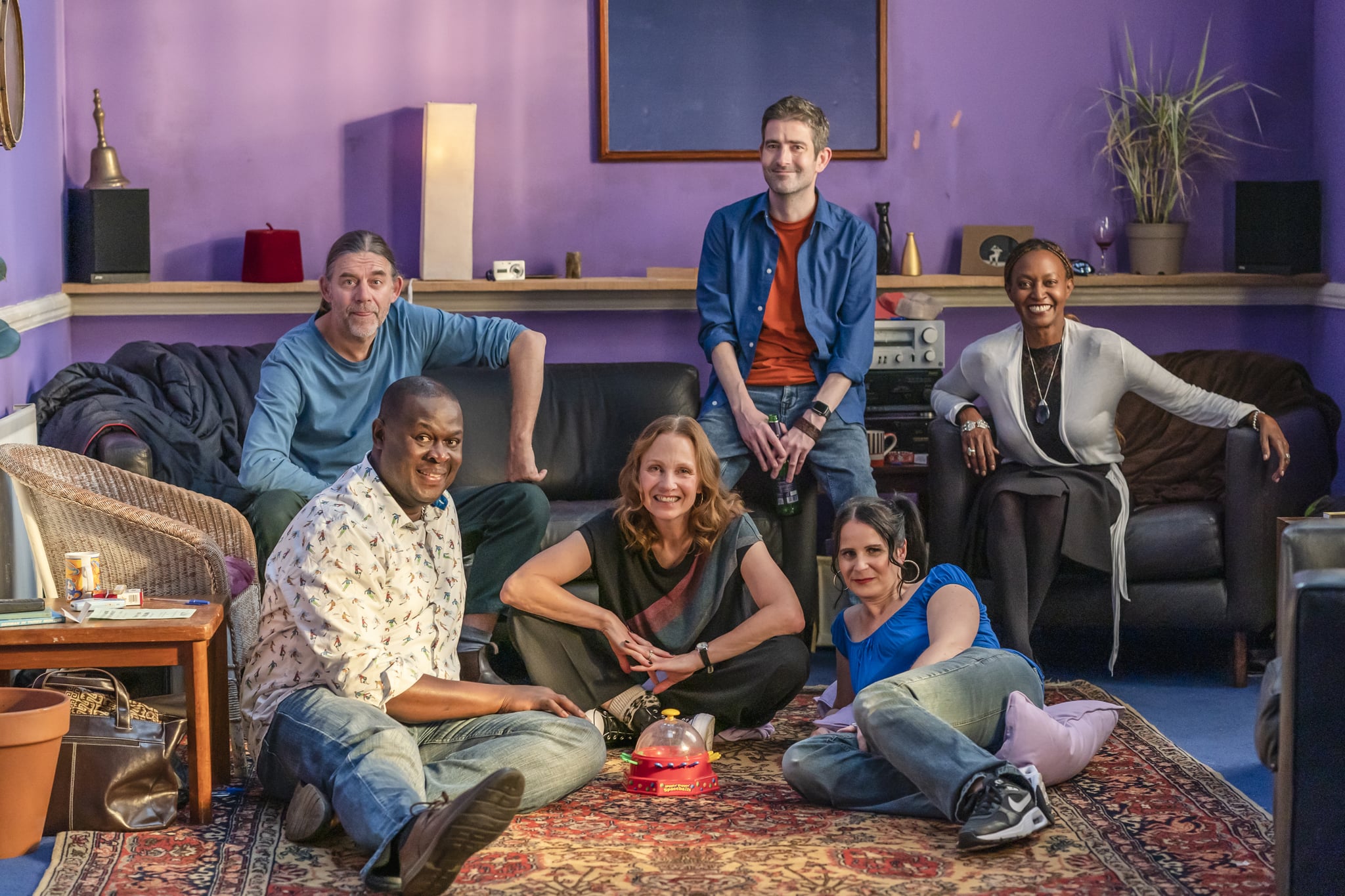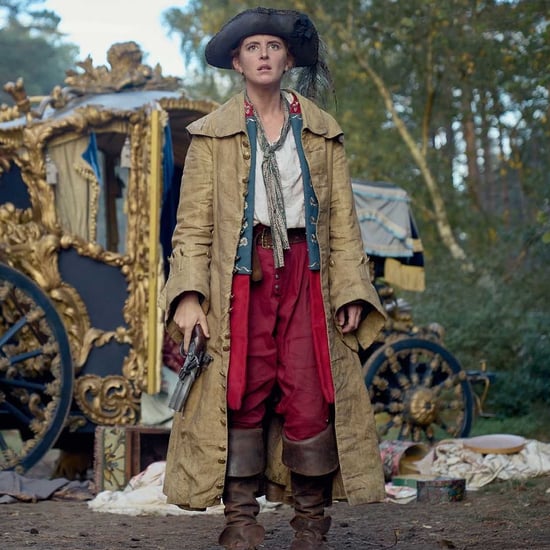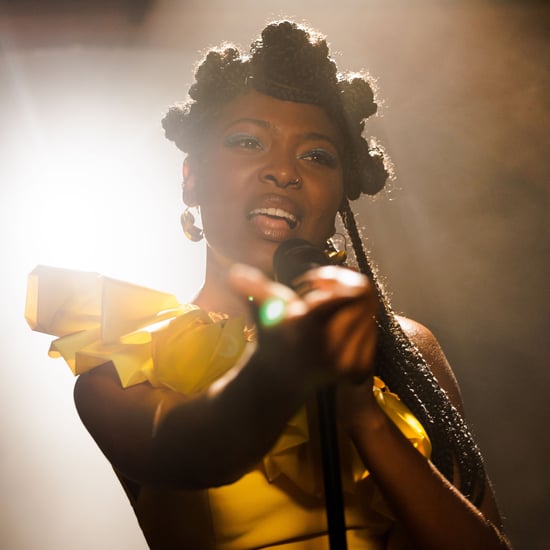The Greatest Show Never Made Is a Warning on Reality TV
Amazon Prime's "The Great Show Never Made" Is a Warning About Get-Famous-Quick Reality TV

The opening line to Amazon Prime Video's new documentary "The Greatest Show Never Made" echoes throughout the entire series: "Money is the biggest obstacle on the way to personal freedom – if you can sort that out, you're laughing." Back in the early Noughties, these words were uttered by Nik Russian (also known by a range of aliases); the man who recruited 30 fame-hungry people to take part in his reality TV series, which he allegedly told them had been commissioned by Channel 4. Small caveat: it turns out the show didn't exist.
The three-part documentary series takes a look at how this odd chain of events came to pass, and the impact it had on all involved. These would-be contestants were encouraged to leave behind their homes, relationships, and jobs to join the show for a year in exchange for fame, TV exposure, and £100,000 each. It's remarkable the scandal wasn't widely konwn at the time. But "The Greatest Show Never Made" (which is incidentally maybe one of the most bizarre documentaries ever made in itself) identifies a problem just as large today as it was in the early 2000s. And that's the ease with which we as humans are seduced by reality TV, and the "get rich and famous quick" promise it makes to those who participate in it.
[W]hy do so many people feel like they can improve their lives by stepping into the world of reality TV?
The documentary's "ex-contestants" – who were aged in their 20s and 30s back at the time – spoke of wanting to "become someone else", bored of their jobs and wanting to do something extraordinary. And the promise of £100K for sacrificing a year of their life seemed too good an opportunity to pass up. One described his dream of becoming an "infinitely better person" after gaining a place on the seemingly new reality TV format.
So why do so many people feel like they can improve their lives by stepping into the world of reality TV? Psychology expert and life coach Bayu Prihandito explains that these shows promise "not just public recognition but also a fast track to personal development and life improvement"; an appealing thought to those dealing with "personal and social challenges" that cause discontent in their lives.
Of course, the events of "The Greatest Show Never Made" took place in the Noughties, when TV as we know it now was in its infancy. "Big Brother" had just hit screens, changing how we view both fame and entertainment. Overnight stardom hit contestants and 24/7 live-viewing became available for the first time, with housemates overhauling their lives for newfound notoriety.
![From Initial TVBig Brother on ITV2 and ITVXPictured: Paul, Tom, Jenkin, Matthew, Zak, Hallie, Noky, Farida, Dylan, Olivia, Trish, Jordan, Yinrun, Chanelle, Henry and Kerry.This photograph is (C) ITV Plc and can only be reproduced for editorial purposes directly in connection with the programme or event mentioned above, or ITV plc. This photograph must not be manipulated [excluding basic cropping] in a manner which alters the visual appearance of the person photographed deemed detrimental or inappropriate by ITV plc Picture Desk. This photograph must not be syndicated to any other company, publication or website, or permanently archived, without the express written permission of ITV Picture Desk. Full Terms and conditions are available on the website www.itv.com/presscentre/itvpictures/termsFor further information please contact:michael.taiwo1@itv.com From Initial TVBig Brother on ITV2 and ITVXPictured: Paul, Tom, Jenkin, Matthew, Zak, Hallie, Noky, Farida, Dylan, Olivia, Trish, Jordan, Yinrun, Chanelle, Henry and Kerry.This photograph is (C) ITV Plc and can only be reproduced for editorial purposes directly in connection with the programme or event mentioned above, or ITV plc. This photograph must not be manipulated [excluding basic cropping] in a manner which alters the visual appearance of the person photographed deemed detrimental or inappropriate by ITV plc Picture Desk. This photograph must not be syndicated to any other company, publication or website, or permanently archived, without the express written permission of ITV Picture Desk. Full Terms and conditions are available on the website www.itv.com/presscentre/itvpictures/termsFor further information please contact:michael.taiwo1@itv.com](https://media1.popsugar-assets.com/files/thumbor/LbS_bsTzK4hSmoGfmiEY0McEa50/fit-in/2048xorig/filters:format_auto-!!-:strip_icc-!!-/2023/10/12/574/n/44490375/tmp_nXesil_c1a4d9f258f2962d_BIG_BROTHER_SR1_10.jpg) Image Source: ITV
Image Source: ITV
While it might seem far-flung that a TV scam of this magnitude would happen today with access to fact-checking on the internet, the perils of reality TV are well-known and the dream regularly does not match up to the actuality. While social media is a constant reminder of the fame and riches that others have in comparison to us, often it's just as much of an illusion as Nik Russian's reality TV show was.
Hordes of young people are keen to launch their influencer careers by appearing on shows such as "Love Island" (one in four millennials admitted they'd quit their job to be famous, according to a survey by Clapit, while 78 percent of Gen-Z teens confirmed they'd be willing to share personal data for online fame via recent research). This is in spite of the trolling, harassment, and death threats many reality TV stars – particularly former Islanders – have publicly spoken about during and after their time on screen. To top off the peak reality TV era we are living in, "Big Brother" is even back on our screens joining a huge slate of real-life drama we have to choose from.
"It feeds the fantasy that anyone, regardless of background, can attain celebrity status, creating a sense of relatability and possibilities."
So why are we still so obsessed with reality TV regardless of its many dark sides? Prihandito says that "reality TV appeals to our innate curiosity about others' lives, giving us a glimpse into a world of influence, abundance, and fame". "It feeds the fantasy that anyone, regardless of background, can attain celebrity status, creating a sense of relatability and possibilities," he adds.
The current cost-of-living crisis is contributing to the need for both an escapist fantasy and a "quick-fix" to problems that are both complicated and draining, financially and for our mental health. Prihandito explains that reality TV "showcases a world where fame means financial stability", adding that our vulnerability to this temptation has only intensified due to the boom of social media platforms like Instagram and TikTok, making the pursuit of fame more accessible at such a difficult time.
He adds that the draw to these shows and their promises indicates a discontentment arising from "unmet needs and unfulfilled desires", and the reason they resonate so much is because the TV shows often "portray a world where these needs are instantly satisfied", offering a "shortcut to social acceptance".
Unfortunately, as entertaining as these shows are and as appealing a quick-fix might be, it might be time to reframe our thinking when it comes to whether reality TV fame could indeed solve our problems. Though it may not be easy, Prihandito recommends considering a shift in our values from external (financial and material) rewards and focusing on intrinsic rewards – prioritising growth through meaningful relationships and our contribution to society.
"It all comes down to defining self-worth from what's within and recognising that true success is holistic, including mental, emotional, and social well-being, not just financial or public fame," he says.






